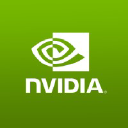Deep - learning Software Engineer, Performance Optimization

NVIDIA
Deep Learning Software Engineer
We are looking for outstanding Deep Learning Software Engineers to develop and productize NVIDIA's deep learning solutions for use in real-life consumer products. The role offers opportunity to develop new deep learning architectures and tailor DNN-s for NVIDIA hardware platform. This role also involves building a close technical relationship with world-class NVIDIA partners during product development and coordinate with internal architecture and software teams to develop the innovative solutions.
What You'll Be Doing
Push the boundaries of the state of the art in DNN performance and efficiency, including model compression, quantization and neural architecture search techniques.
Analyze, profile and optimize the latest DNN AI algorithms, and implement as production-quality software libraries for latency-critical use-cases on next-generation hardware.
Collaborate with researchers and engineers across NVIDIA, improving the architecture of future NVIDIA chips and ensure that they are ready to support the latest advances in AI.
Assist NVIDIA customers to bring ground-breaking products to life on the foundation of NVIDIA AI technology.
What We Need To See
University degree, or equivalent knowledge, in Computer Science, Electrical Engineering, Physics or Mathematics.
5+ years of work experience in related fields, AI, machine learning, HPC, numeric computing, with responsibilities that include inference/software optimization.
Proficiency in C++, Python, data structures, algorithms, computer architecture and operating system concepts.
Knowledge of deep-learning toolchains (PyTorch, TensorFlow, Keras, ONNX, TensorRT, numeric libraries, containers, etc.)
Experience with neural network training, pruning and quantization, deploying DNN inference in production systems.
Experience optimizing and implementing compute algorithms on accelerated hardware, such as SIMD instruction sets, GPU-s, FPGA or DNN ASIC.
Familiarity with CNN, LLM and ViT architectures, as well as the latest progress in the field.
Experience creating DNN models for solving production problems in any domain, including computer vision, speech recognition, natural language processing, optimization or generative AI.
Ways To Stand Out From The Crowd
Experience implementing DNN inference via NVIDIA TensorRT, DLA, or natively using C++, CUDA kernels or low level libraries, such as BLAS.
Experience building distributed deep-learning infrastructure, HPC, cloud programming.
Contribution to open-source projects, including personal projects published as open-source (please provide link to GitHub repository).
Published paper at relevant conferences or in journals (e.g. NIPS, ICML, ICLR, CVPR, ICCV, ECCV, SIGGRAPH, etc.)
Achievements in programming or machine learning competitions, such as Kaggle, HackerRank, TopCoder, etc.
NVIDIA is leading the way in groundbreaking developments in artificial intelligence, high-performance computing and visualization. The GPU, our invention, serves as the visual cortex of modern computers and is at the heart of our products and services. Our work opens up new universes to explore, enables outstanding creativity and discovery, and powers what were once science fiction inventions from artificial intelligence to autonomous cars. NVIDIA is looking for great engineers and scientists to help us accelerate the next wave of artificial intelligence.